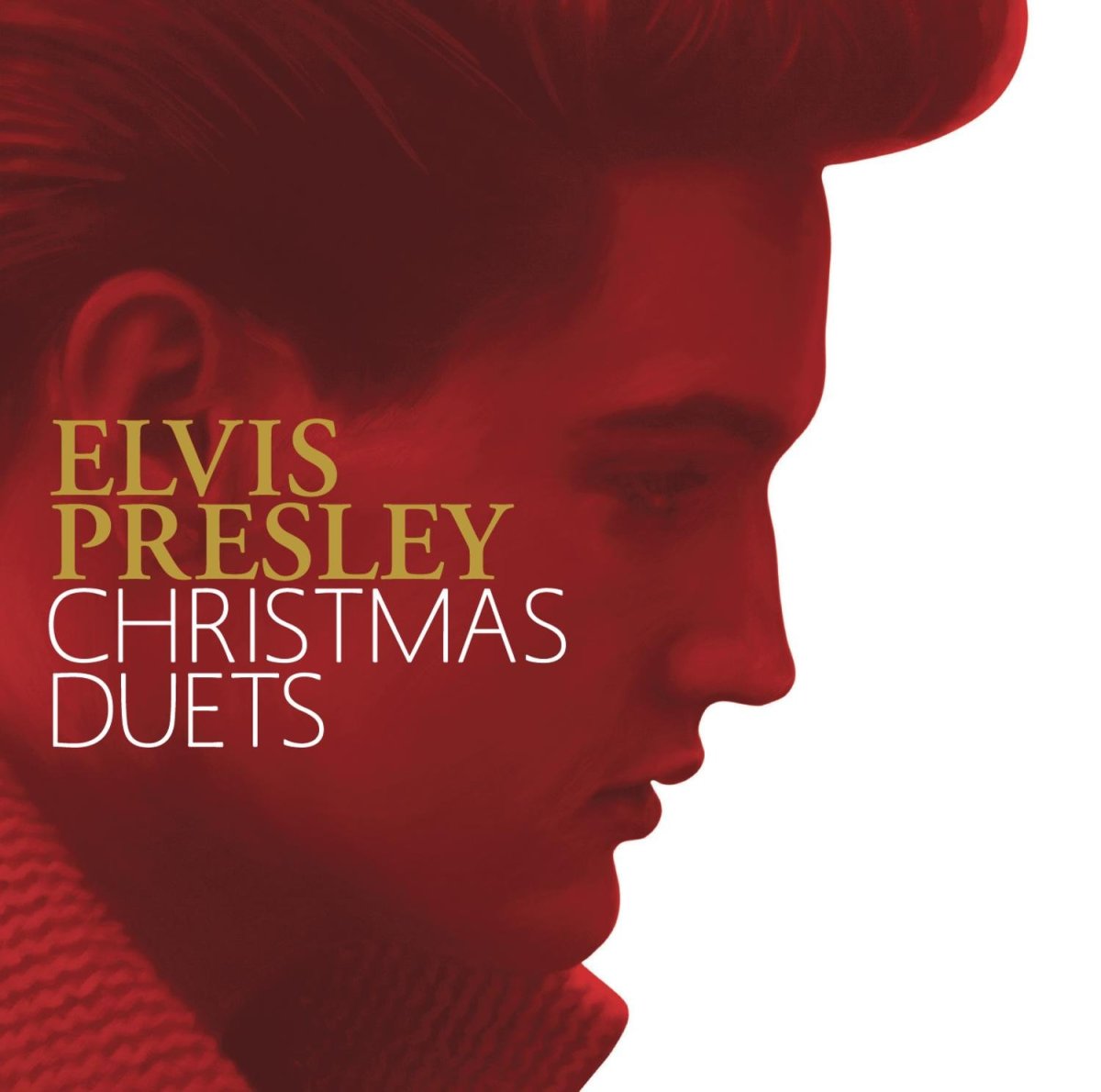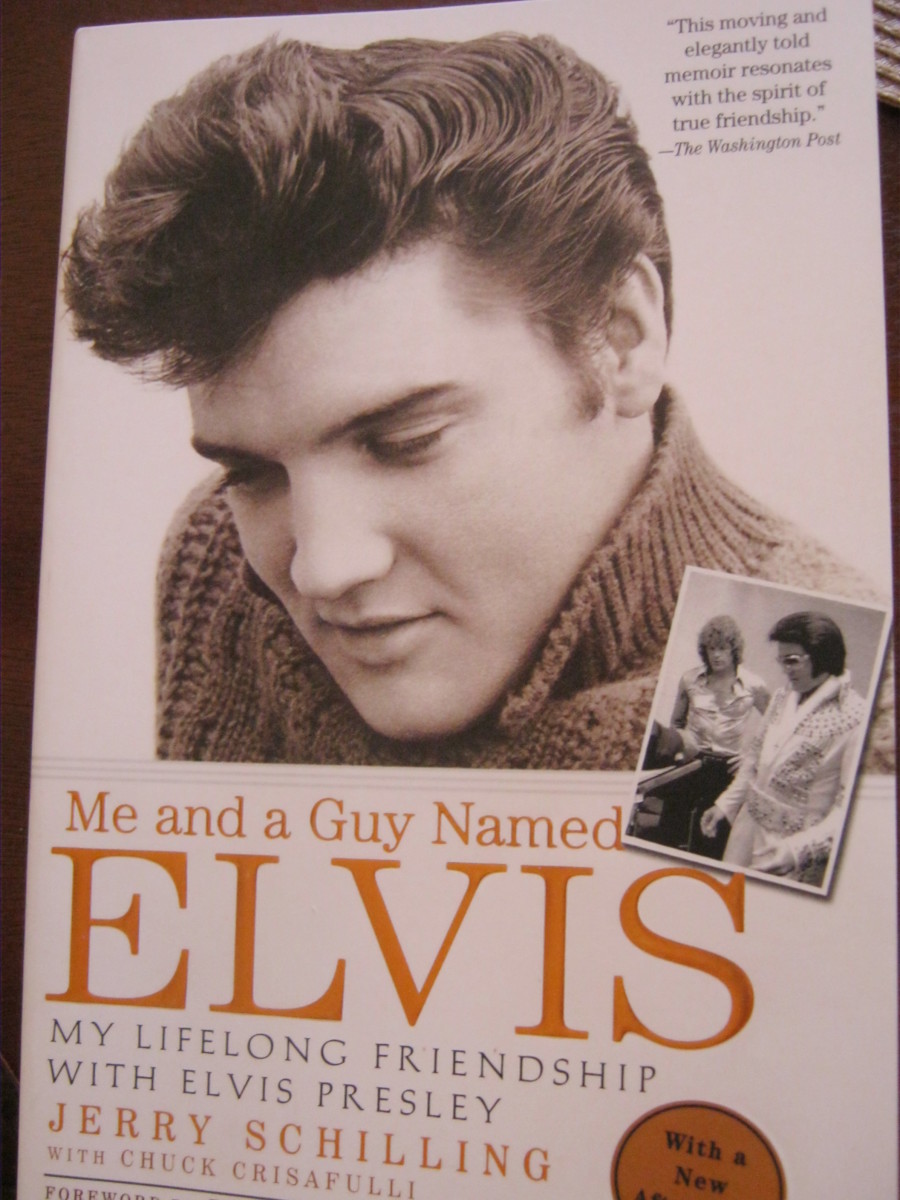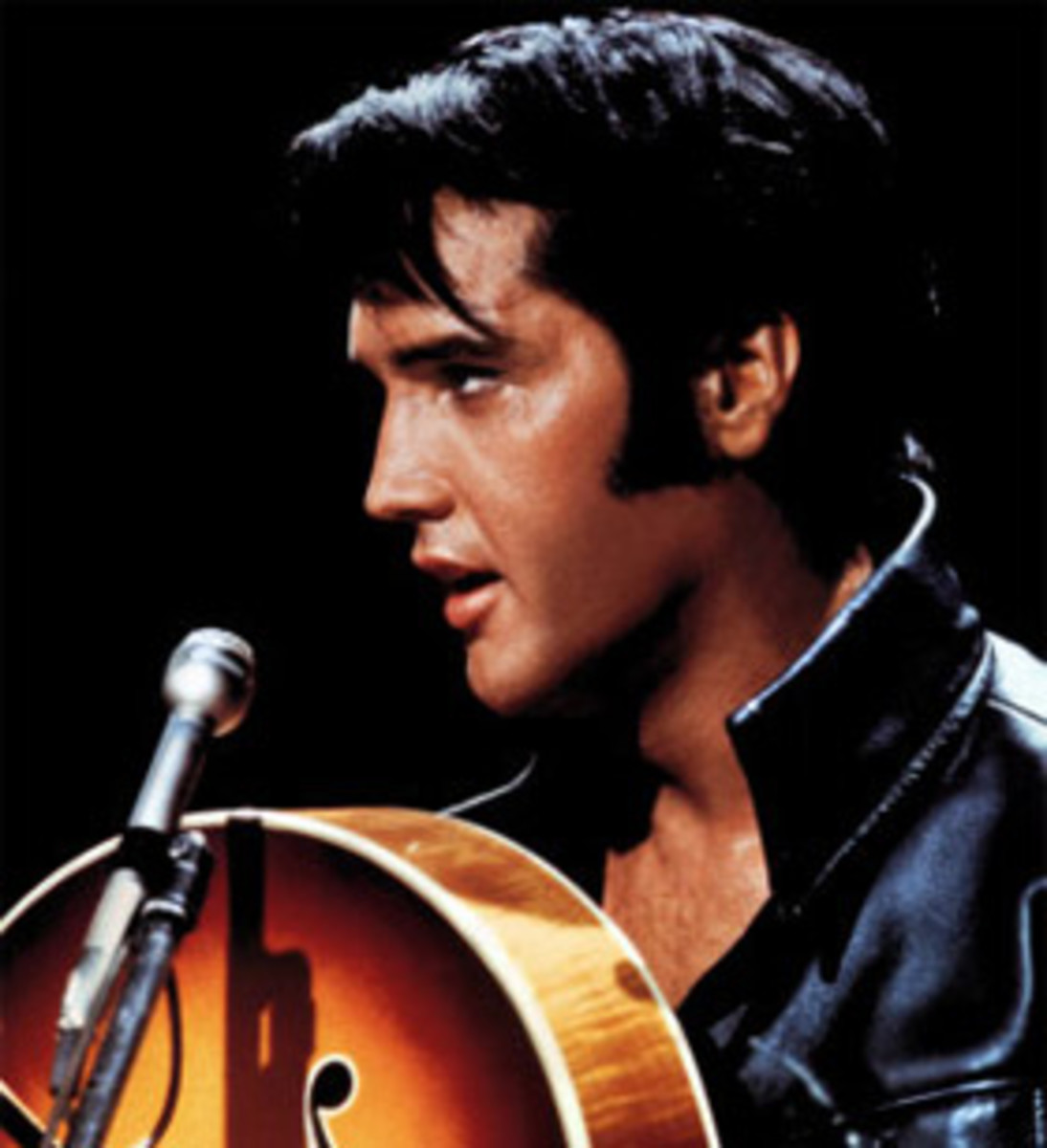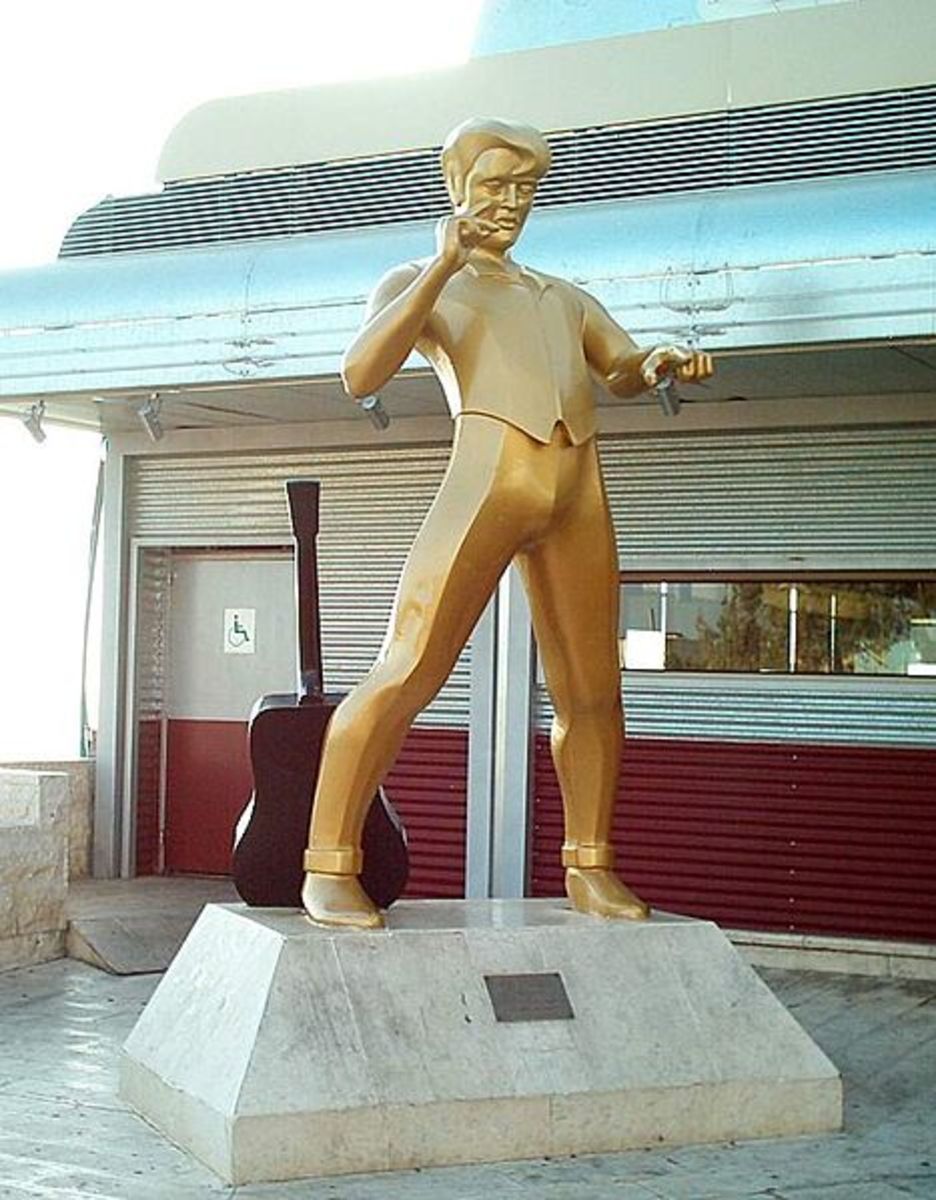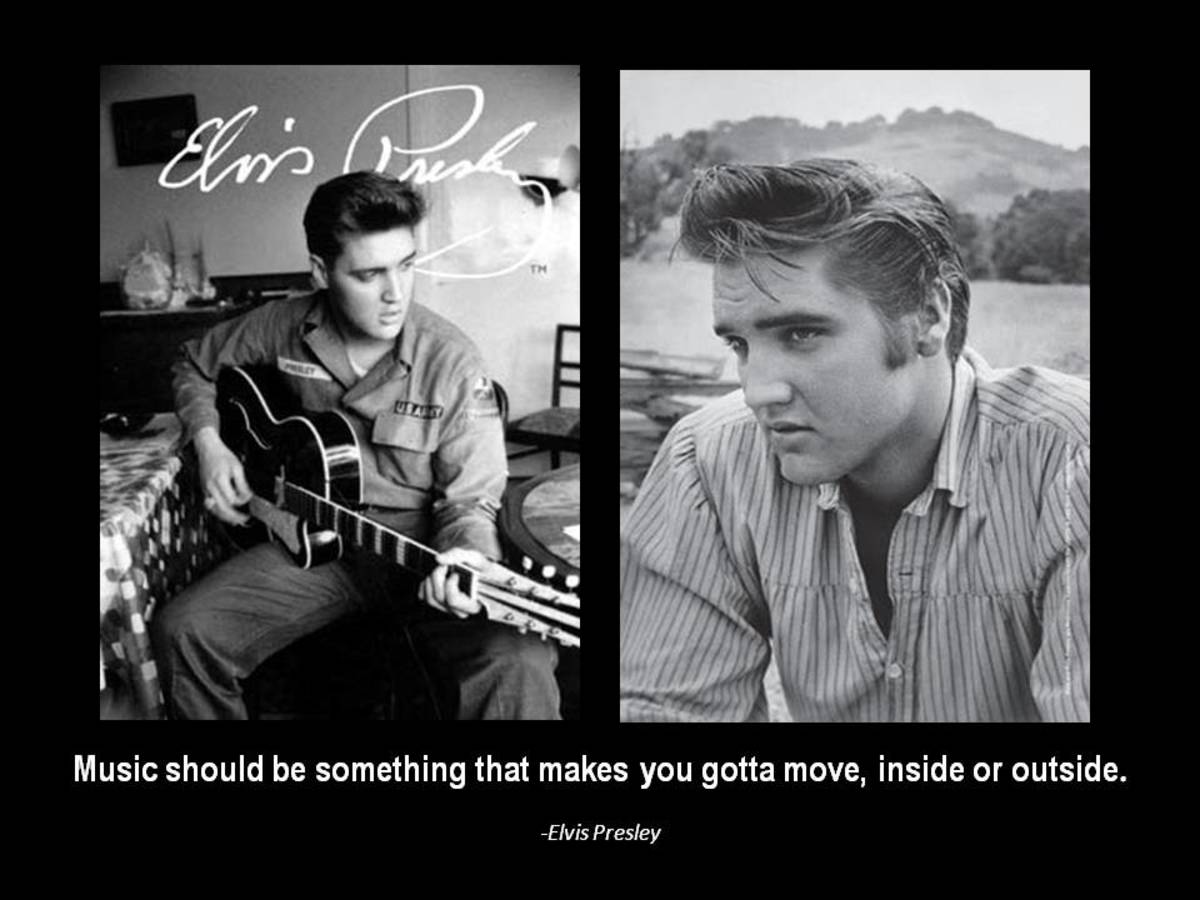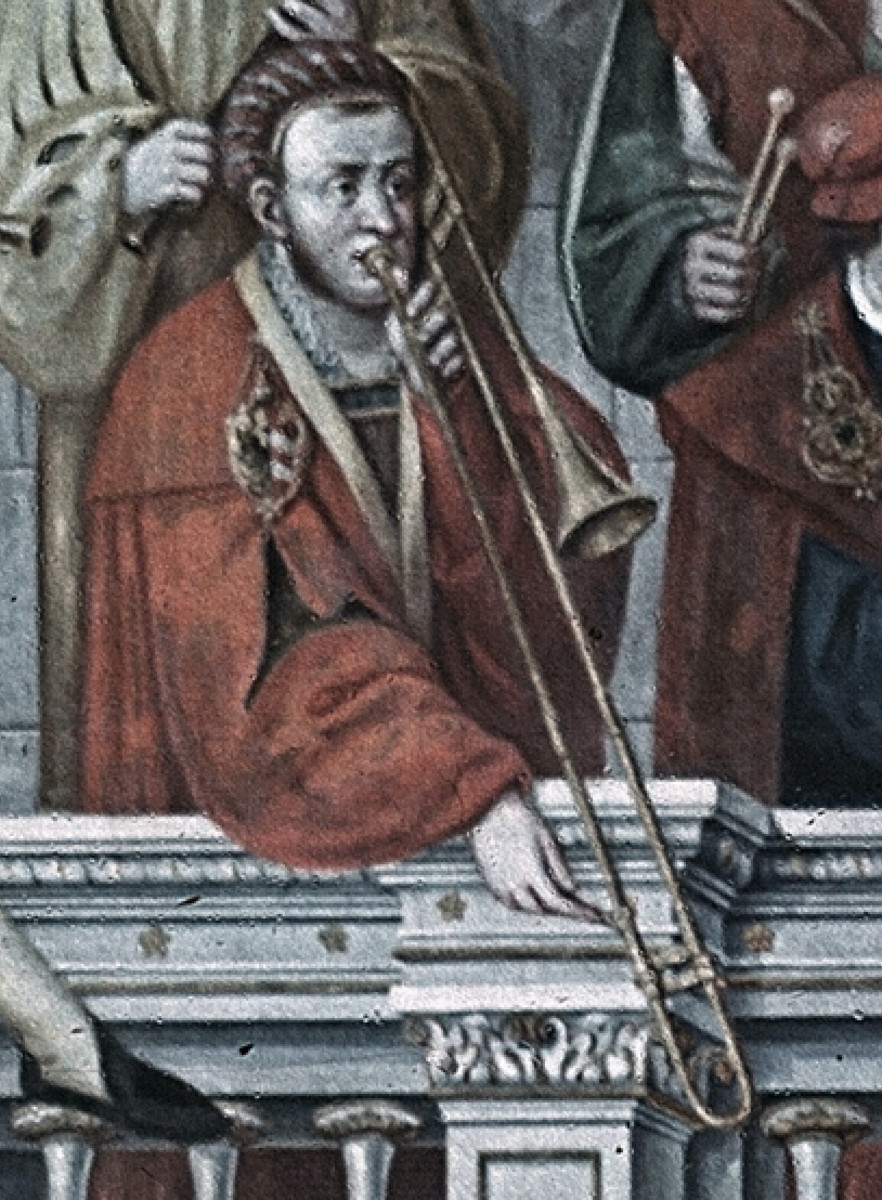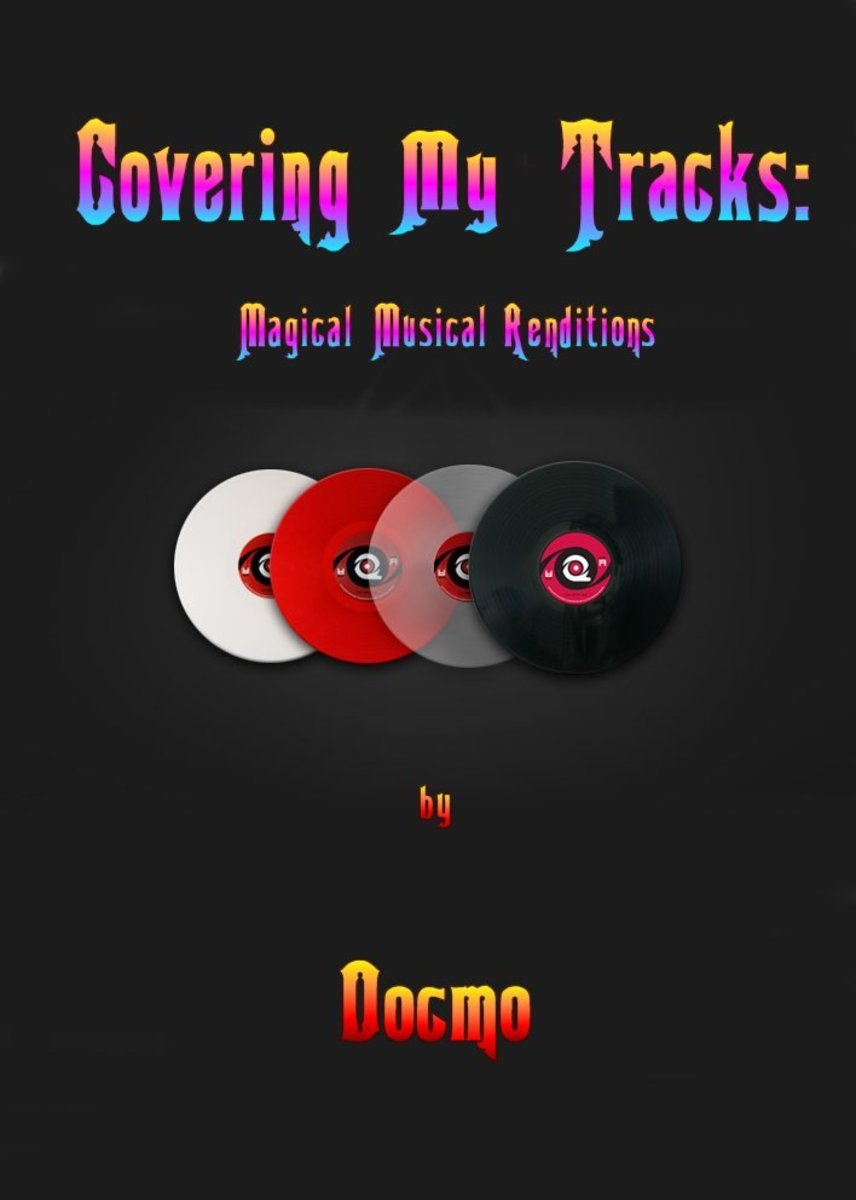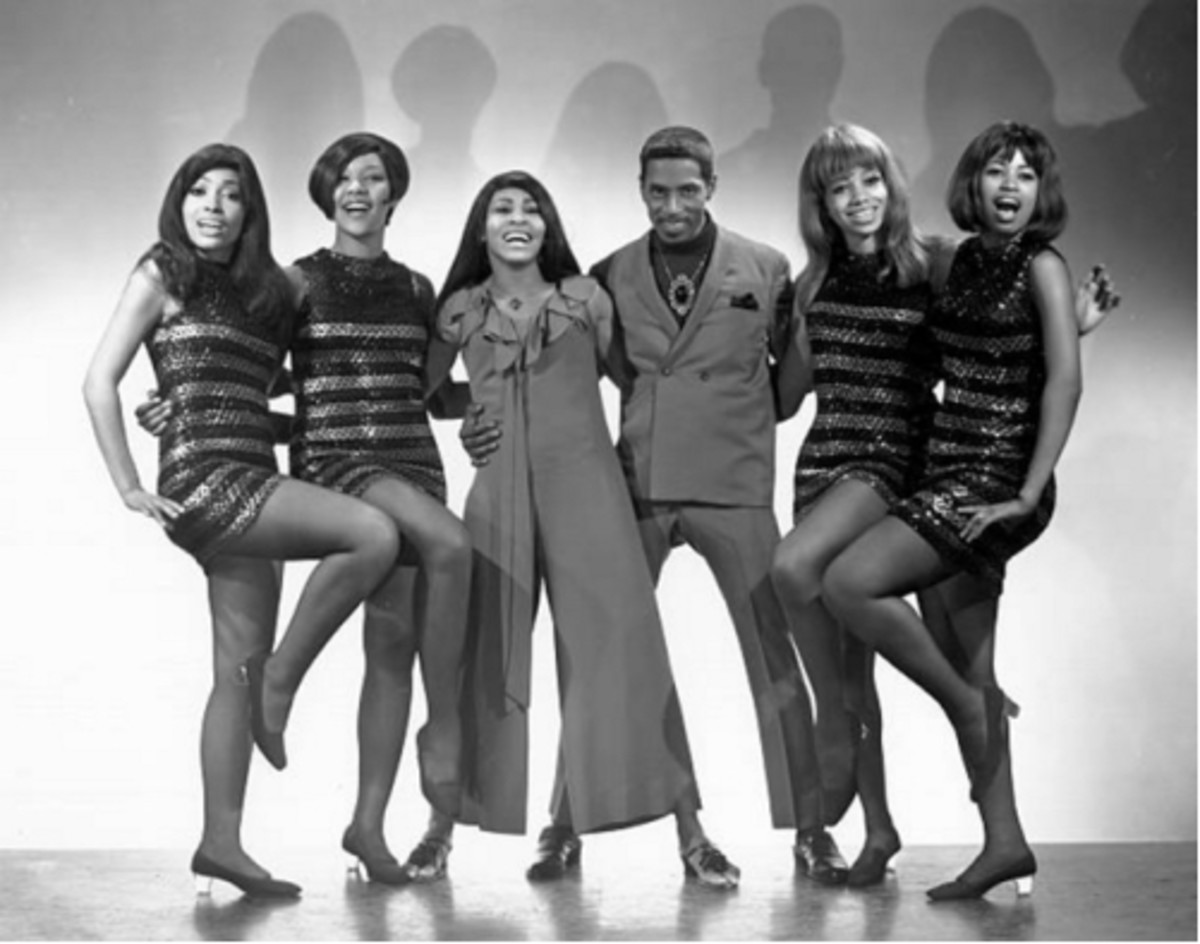Elvis Presley Biography - From Tupelo to International Fame
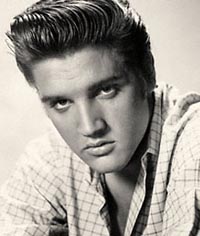
Early Years
He is known as the "King of Rock and Roll", "The King", or more commonly to the world "Elvis"; Whatever name he is known by, Elvis Presley continues to be a world wide phenomena, and cultural Icon. Elvis Aaron Presley was born in Tupelo, Mississippi on January 8, 1935 to Vernon and Gladys Presley; Elvis's older twin brother Jesse, who was delivered minutes before him was stillborn. The Presley household lived a "hand to mouth" existence with Vernon Presley's unstable work history. The Presley's often needed help from family, neighbors. and when possible government assistance. As the only child, Elvis was close to both his parents, especially his mother. From early on, Elvis Presley's earliest musical influence was the church. In 1938, Vernon Presley was arrested and found guilty of check forgery; as a result of his arrest and time in jail, the Presley's lost their home. While Vernon was incarcerated Gladys and Elvis Presley went to live with relatives.
In the Fall of 1941, Elvis was enrolled in the first grade; it was during these early years he first begun to attract attention with his singing. Impressed with young Elvis's singing during morning prayer, his teacher encouraged him to enter a local contest at the county fair. In October 1945, Elvis sang a song called "Old Shep" and although he didn't win, it was his first public performance. For his birthday in January of 1946, Elvis received his first guitar; he begun to learn chords from his uncles, and later the pastor at his church.
In September 1946, Elvis was in the sixth grade. He was considered to be a loner and shy; this would change soon. In the next year, young Elvis begun to play his guitar and sing during lunch time; he was teased because of his love of hillbilly music, but that didn't stop him from singing; also, it was during this time the Presley's were living in a mostly African American community; so Elvis was exposed to the genre Rhythm and Blues early on. Elvis loved the music of Mississippi Slim; when Elvis was befriended by the younger brother of Slim, he begun to hang out at the radio station. Consequently Mississippi Slim took an interest in Elvis, and taught him some Chords. When Slim thought he was ready, he allowed twelve-year-old Elvis to perform. Although Elvis was nervous during his first performance, his second performance was better.
The move to Memphis
The family moved to Memphis in November of 1948; Upon arriving in Memphis, and after waiting for close to a year, the Presley family where given a two room apartment in public housing. Elvis was now in the eight grade at Humes High School. As before, he was picked on my his classmates who saw him as shy and a mama's boy. In 1950 Presley was befriended by Jesse Denson, a neighbor who was a few years older than Elvis; Jesse taught Elvis what he knew about the guitar. Later, Elvis, Jesse and a few other boys living in public housing formed a group that often played together. In September of 1950 Elvis began to usher at Loew's Theater; this job was one of the few he held while in High School. When Elvis was in his junior year he begun to change his appearance; he grew his sideburns, and styled his hair using Vaseline to get the look he desired. During his free time he loved to hang out on Beale Street; back in the 50's this was the heart of the blues scene in Memphis, Tennessee. On thing that Elvis admired and wanted to have were the clothes in the window of Lansky Brothers clothing store. By the time Elvis was a Senior in High School, he was able to purchase what he wanted.
In April 1953 Elvis decided to competed in Humes's High School "Annual Minstrel". He sang a song called "Till I Waltz Again With You". When the show was over, Elvis noticed his performance did much for his popularity. Up till that point he was too shy to sing in public.
Elvis continued to study the musical styles of many of his favorite artist; He was a regular at stores with jukeboxes and listening booths. Some of his favorite performers included Hank Snow, Ernest Tubb, Jimmie Rodgers, Bob Willis, and The Gospel singer Jake Hess. Elvis adored the music of gospel artist Sister Rosetta Tharpe. Many of his future recordings were inspired by African American musicians such as Bo Diddley, Rufus Thomas, B.B. King and Big Joe Turner. When Elvis finished high school in June 1953, he decided to be a professional singer.
Sun Records
In August 1953, Presley walked into Sun Studio. When he was asked by the receptionist Marion Keisker what kind of singer he was, Elvis responded, "I sing all kinds". When Keisker asked him whom he sounded like, Elvis said, "I don't sound like nobody"; he was right. After the recording session, Sam Phillips the owner of Sun Records asked Keisker to write down Elvis's name. In January 1954 he returned and made additional recording but once again nothing happened. In April 1954, Presley began working for a Memphis based Electric company as a truck driver. During this time from January to June 1954, Elvis continued trying to find a vocalist opening in a band but no one wanted him. Finally in June 1954 something happen. Hoping to bring Rhythm and Blues to a broader audience, Sam Phillips continued to be on the look out for a white man with an African-American sound and feel. In early July 1954 he had Elvis to stop by his studio for another recording session. Presley tried, but was unable to sing the song "Without You" as Phillips wanted . Despite this minor setback, Sam Phillips asked Elvis to sing as many songs he could remember. Phillips felt he was close to a break though so he invited two musicians, guitarist Winfield Moore and bass player Bill Black, to work with Elvis during this recording session. As the session went on it wasn't going anywhere. When all were about to call it quits, Elvis begun singing a song called "That's all Right" ; basically he was just fooling around, but when the bass player Bill joined in the fun, it caught the attention of Phillips. who asked them to start again so he could record the performance. A few days later, the song was played on local radio in Memphis; When "That's all Right" was played, listens called in wanting to know who was singing that song. Sam Phillips found the sound he was looking for. In the next few days a B side song "Blue Moon of Kentucky" was recorded and a record was made with "That's all Right" on side A and "Blue Moon of Kentucky" on B side.
RCA Records
Later. in mid July 1954 the trio performed live for the first time; At the end of July 1954, they appeared as the opening act with Slim Whitman headlining. Elvis was still neverous when he performed in front of a crowd; this time with his strong feel of the music's rhythm and the exceptionally large crowd caused Elvis's legs to shake as he performed; this caused the young ladies in audience to scream in excitement. Sensing young Elvis was going places Moore and Black decided to quit their old band and play for Elvis. For the next few months, the trio played local gigs, and returned to Sun Records for additional recording sessions. During this time, Presley made his only appearance on the Grand Ole Opry. Presley received a lukewarm response from the audience; when asked the manager Jim Denny said his type of music didn't suit them. Elvis's career was starting to take off; in a few days he was on the Louisiana Hayride. This show was broadcast to over 190 radio stations in move than 26 states. Once again, Presley had another attack of nerves; his first show drew a lukewarm response from the audience; during his second show, he was more composed and energetic, and it received an enthusiastic response from the audience. As a result of his popularity and the increased ratings, the Louisiana Hayride made an agreement with Presley for a years worth of Saturday shows. About this time, Elvis and his band begun playing in Houston, Texas and Texarkana, Arkansas too. When early 1955 rolled around, Elvis was already a regional star. This didn't escape the attention of Colonel Tom Parker. At the time Col. Parker was managing a new country singer Hank Snow; so Parker decided to place Elvis Presley on Snow's February tour. When the tour performed in the area of Dallas,Texas, a 19-year-old named Roy Orbison saw Elvis and was inspired and amazed at his energy and stage presence. In March of 1955, Elvis Presley made his television debut on the KSLA-TV station of the Louisiana Hayride. For the second half of 1955, Elvis maintained an extensive tour schedule, and Elvis renewed his manager's contract(Neal) with Col. Tom Parker as his special advisor. As his fame continued to rise, and he drew more attention, various record companies were showing interest in Presley; some had offered as much as 25 Grand to sign him, but one label RCA offered $40,000 for Presley's contract; In Nov 1955 Col Parker and Sam Phillips agreed to their offer. So when December 1955 rolled around, RCA started to heavily promote Presley.
National TV
On January 10, 1956, Elvis completed his first recordings for RCA.The session produced the song "Heartbreak Hotel", and it was released as a single late January 1956. Once this was done Col. Parker was able to arrange for Elvis to be on national TV. Elvis Presley's first national appearance was on CBS's Stage Show; When his appearance was done, Presley stayed in New York for a Recording session at RCA's New York location. The session produced a few good songs, including a cover of Carl Perkins song "Blue Suede Shoes". Later in early April, Presley appeared on the Milton Berle Show, and around this time his original release of "Heart Break Hotel" became his first number one hit. Towards the end of April 1956, Elvis began a two-week period of performances at a casino on the Las Vegas Strip. The shows were not received well by the middle aged hotel guests; Despite the slight downturn in Vegas, Elvis had ambitions about becoming an actor; he signed a seven-year contract with Paramount pictures, and soon after begun a tour of the Midwest in 15 cities. His second appearance on Milton Berle was on June 5, 1956; During the performance, Elvis stopped an uptempo of Hound Dog and started a slow grinding version with exaggerated movements; this set off a wave of controversy among TV critics. Ed Sullivan said he was unfit for family viewing. Despite the firestorm of controversy Elvis created, there was no denying the high ratings Milton Berle's show received; On July 1st Elvis was booked to appearance on NBC's Steve Allen Show. Although Allen was no fan of Rock and Roll he thought he could introduce a more acceptable Elvis in white bow tie and tuxedo. Presley sang "Hound Dog" to a basset hound in a top hat and bow tie. Despite what Allen thought about Elvis, Presley enabled Steve Allen to beat Ed Sullivan show ratings for the first time. In the talk show world ratings are everything, so when Steve Allen beat Ed Sullivan's show ratings, of course Ed Sullivan had to have him on his show. Later in December 1956, Elvis Presley decided to pay a visit to Sun Records while Carl Perkins, Jerry Lee Lewis and Johnny Cash were in house; the visit turned into a music session, and although he no longer had the recording rights to release music by Elvis Presley, Sam Phillips made sure the session was recorded. The results became known as the "Million Dollar Quartet" recordings.
Draft Notice and Death of His Mother
In January of 1957, Elvis made his final appearance on the Ed Sullivan show. He ended his appearance with a Gospel song. In contrast to what Sullivan said about him earlier, he declared Elvis to be a fine young man. Not long after his appearance on Ed Sullivan show, the draft board announced Elvis Presley would probably be drafted; while he received notification of his draft, his records keep on going number one. Early in 1957 each of his three singles were number one hits including "Teddy Bear", "Too Much" and "All Shook up". Despite his busy schedule with all the tours, recording sessions and movie deals, He made time to purchase a mansion eight miles from downtown Memphis for himself and his parents; this mansion would be known as Graceland. While on tour in Seattle, Washington, and unknown to Presley at the time he made a big impression on a fourteen year old named Jimi Hendrix. Later, on December 20, 1957 shortly after completing the "Elvis Christmas Album", Elvis received his draft notice. However, he was granted a deferment to finish his King Creole movie. Once his deferment was up, Presley was inducted into the Army at Fort Chaffee close to Fort Smith Arkansas. Once he arrived there the base was not prepared for the media attention Elvis caused. Soon after Elvis had started basic training at Fort Hood, During a two-week leave in early June 1958, Presley found time to record five songs in Nashville; afterwards he returned to training. In early August his mother became very ill and her condition worsened. Elvis was granted emergency visitation to see his mother; On August 12th Presley arrived in Memphis. Two days later, Gladys Presley died of heat failure. Elvis was devastated; he and his mom were very close. After his training was completed at Ft Hood, Presley was assigned to the 3rd Armored Division in Germany October 1958. It was while Elvis was stationed in German that he met Priscilla Beaulieu. During his time in the military, Elvis worried about his singing career; he was not alone the media worried too. However, RCA records planed ahead; there was enough unreleased songs to keep a steady stream of music while he was active military. From his induction to his discharge Elvis had ten top 40 hits.
Discharged from the Army and the 1960s
Presley returned to the United States in March of 1960; His rank when discharged was Sergent. Once he arrived in Memphis, he wasted no time in getting back to the recording studio. The Sessions in March and April yielded some of his best selling hits, including "Its Now or Never" and "Are You Lonesome Tonight". Later in May 1960, Elvis returned to television on a guest on The Frank Sinatra Timex Special. Later in the year the soundtrack to GI Blues was released; it was a number one album in October. Two months later, Elvis released his first Gospel music album "His Hand in Mine"; it was number thirteen in the United States.
As the 1960s moved on, and with pressure from Col. Tom Parker, Elvis was forced into a heavy movie making schedule; as a result his music became secondary; of the 27 plus movies made during the 1960s more than fourteen had soundtracks, and as the decade went on the quality of the sound tracks got worst. Often the music was written by people who didn't understand Elvis or Rock and Roll; But for the most part all the movies during this decade were profitable; a problem wasn't noticed by RCA till late in the 1960s when one of his soundtracks had poor sales; by then the damage was done. Also, during this time seven years later after they met, Elvis Presley married Priscilla Beaulieu on May 1, 1967.
1968 Comeback and Marriage Problems
The 1968 comeback performance was aired December 3. 1968. This was Presley's first live show since 1961. Presley was clad in black leather, singing and playing guitar in an uninhibited style that reminds you of an younger Elvis from the early 1950s.The show was NBC's highest rated for that season; it had over 40 percent of the viewing audience. Later, when viewing his show, and reflecting on the movies made during the 1960s, Elvis said to the concert director it is the greatest thing i have done; I will never sing a song I don't believe in again.
Encouraged by the experience of the 1968 Comeback, Elvis had a series of recording sessions at the American Sound Studio in Memphis, which led to the album "From Elvis in Memphis". Released in June 1969, it was his first , non-soundtrack album from a studio in eight years. it caught Elvis up with pop music trends that passed him during the years he focused on movies. The featured hit on the album was "In the Ghetto". His first secular hit since 1963.
Early in 1970 Presley returned to touring; During February, he performed six record breaking shows at the Astrodome in Houston Texas. In April 1970, the single " The Wonder of You" was released it was a number one hit in Britain, and it made the charts in the United States too. Presley was now performing in a jumpsuit, which was a trademark of his live act now.
Although Elvis was making a come back the marriage between him and Priscilla became more strained as time went on. The Presley's separated in February of 1972 and after much drama filed for a divorce in August 1972, and the divorce went into effect in October 1973.
In January 1973 "Aloha from Hawaii" was the first global satellite broadcast concert, reaching 1.5 billion viewers live and on tape.The album that was released with this concert would be Presley's last number one album.
Death
Because of his hectic schedule, health problems, and other personal issues his health begun to fail. Over the next few years, Elvis's health continued to get worst till he was found unresponsive on floor of his home; Elvis Presley was pronounced dead on August 16, 1977. President Carter made a statement crediting Presley's contribution to the music world, and thousands of people gathered at Graceland to view the body. In 1982 Graceland was opened to the public, and in 2006 it was made a national Historic landmark. Whatever you may think of this man, he helped to shape Rock and Roll music. He was nominated for 14 Grammys, of these he received three; he also received the Grammy Lifetime Achievement Award before he was 38 years old, and Elvis was inducted into four music halls of fame. Elvis Presley also Inspired future Rock and Roll Legends, helped to break down segregation, and helped to open the door for many African-American performers.
Additional Information
- Wikipedia.org - Information on Elvis Presley's Life
- Wikipedia.org/ElvisDiscography - The Music of Elvis
- Wikipedia.org/Elvis Movies - The Movies Made by Elvis
- ElvisonStamps.com - A variety of postage stamps honoring Elvis
- LanskyBros.com - Where Elvis bought his cloths
- Expedia.com - Travel, Weather, Hotels in Memphis area
- Charlie Rich - An Article related to Presley's years at Sun Records

